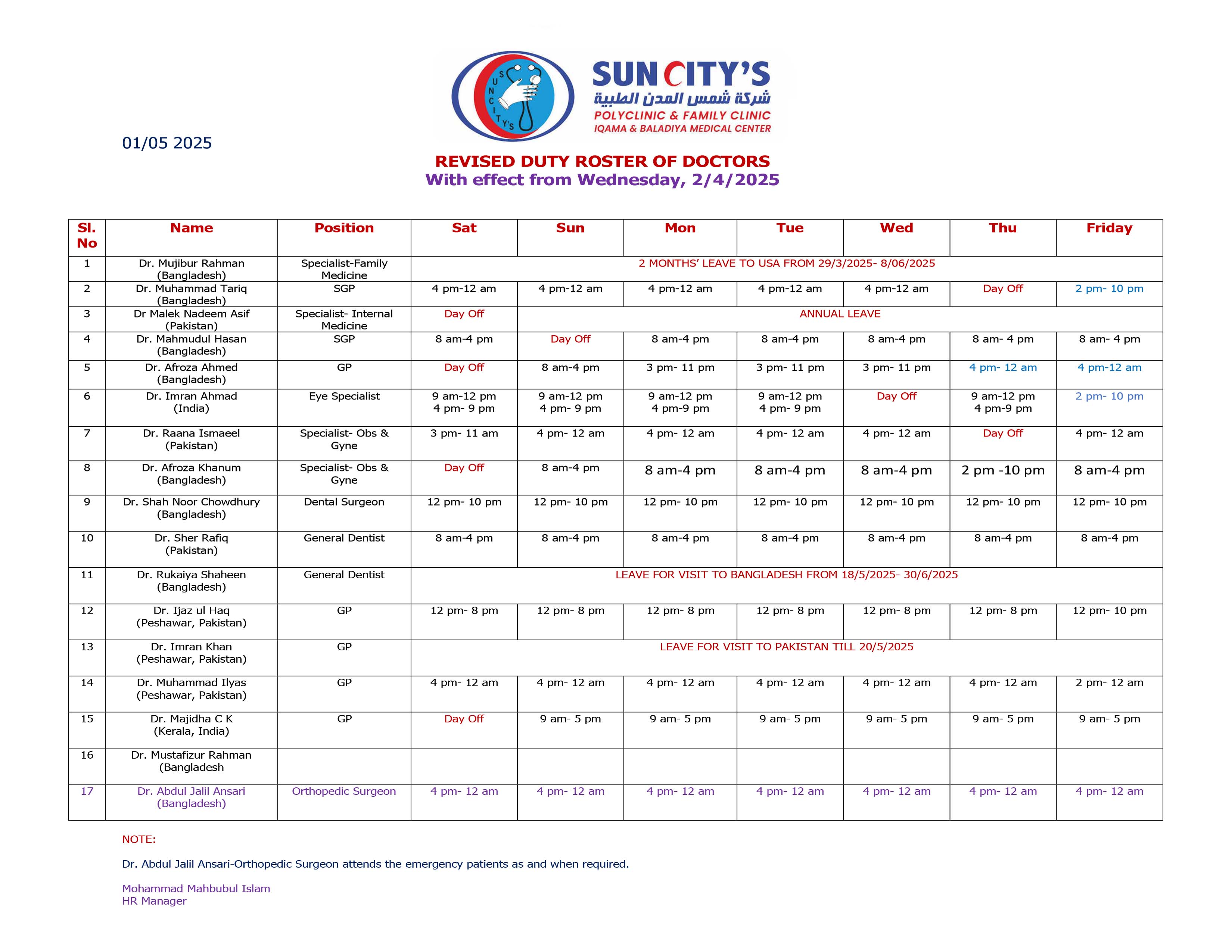Duty Roster of Doctors

Key Aspects of Family Medicine: Preventive Care: Routine check-ups and health screenings. Immunizations and vaccinations. Lifestyle counseling (diet, exercise, smoking cessation). Management of Acute and Chronic Conditions: Acute illnesses like infections, minor injuries, and respiratory conditions. Chronic diseases such as diabetes, hypertension, asthma, and arthritis. Comprehensive Care Across Ages: Pediatrics: Growth monitoring, immunizations, and common childhood illnesses. Adolescents: Guidance on mental health, puberty, and lifestyle choices. Adults: Management of chronic conditions and preventive screenings. Elderly: Geriatric care, fall prevention, and cognitive health. Family-Centered Approach: Addressing family health dynamics and hereditary conditions. Counseling for mental and emotional well-being. Continuity of Care: Building long-term relationships with patients. Coordinating with specialists when needed and managing transitions of care. Key Competencies of Family Physicians: Broad medical knowledge spanning multiple disciplines. Emphasis on patient education and shared decision-making. Expertise in handling undifferentiated and multi-system diseases. Scope of Practice: Family medicine is one of the most versatile specialties, often encompassing: Office-based care. Minor surgical procedures. Obstetric care in some settings. Geriatric and palliative care. Family physicians play a critical role in fostering health and wellness within communities by providing accessible and continuous care tailored to the individual and family.
"Suncity Polyclinic: Confidence in healthcare in Riyadh, where patients receive dedicated care."